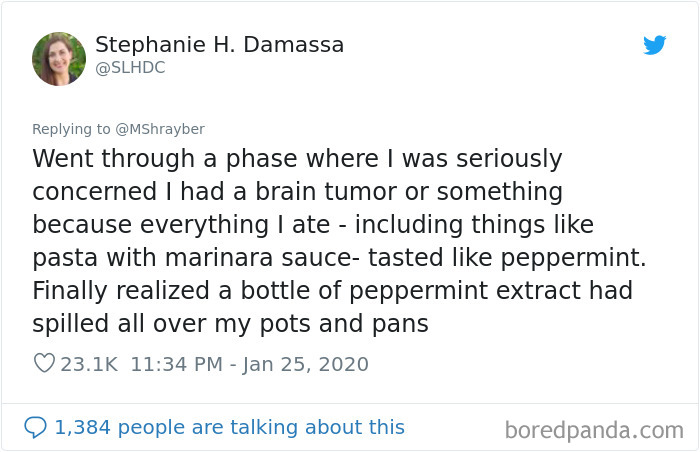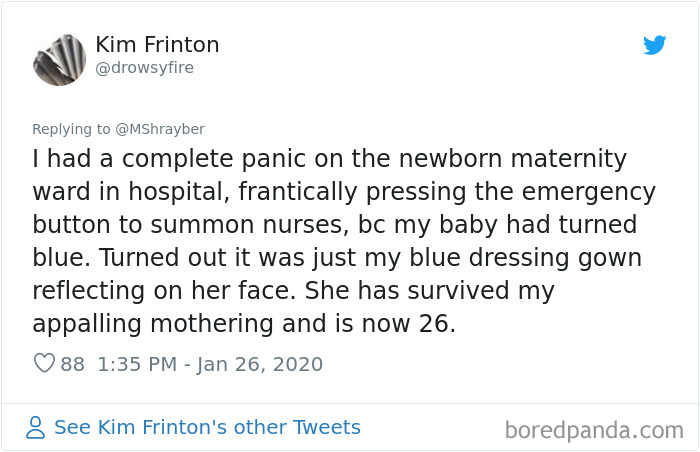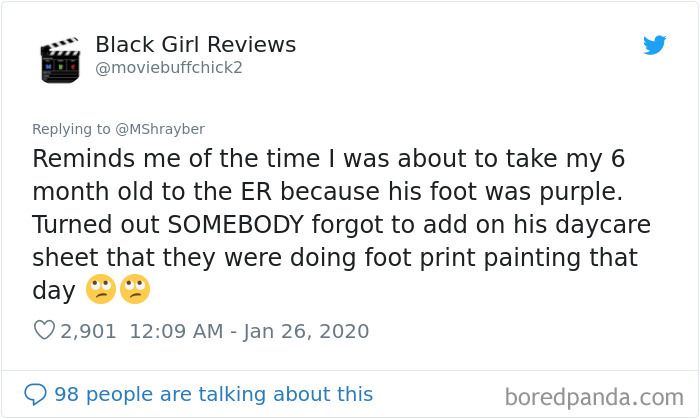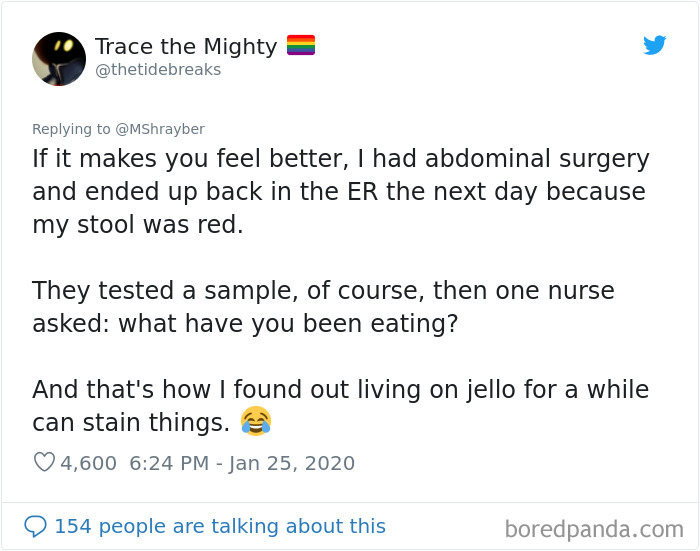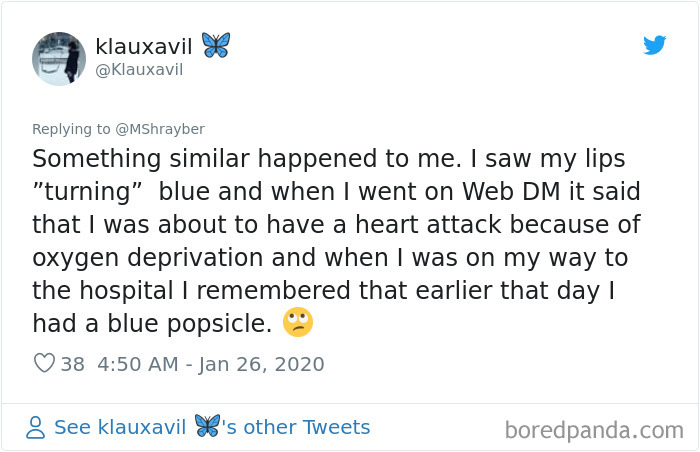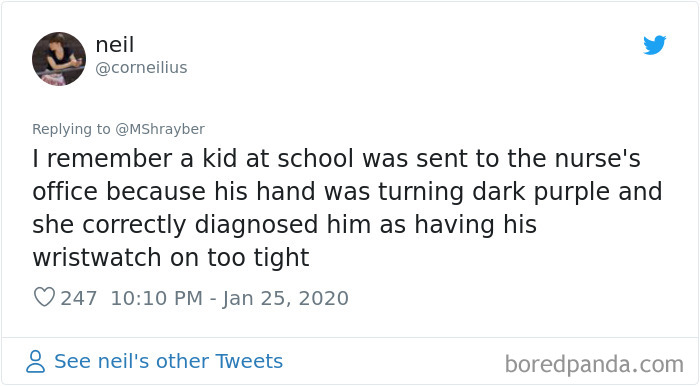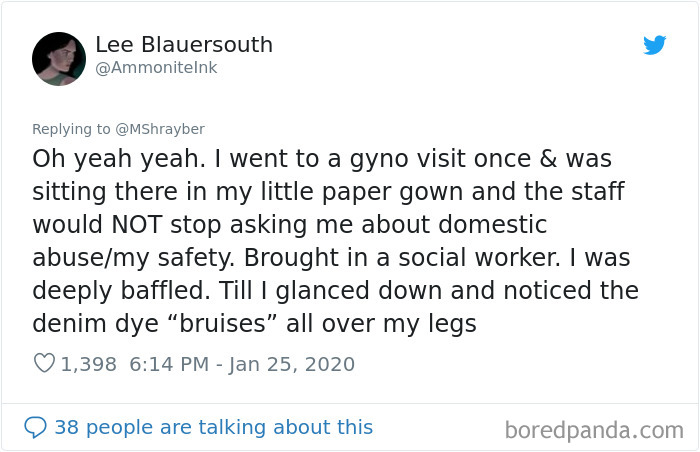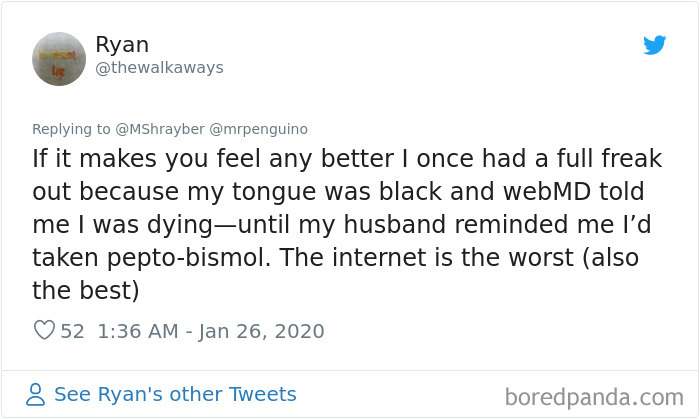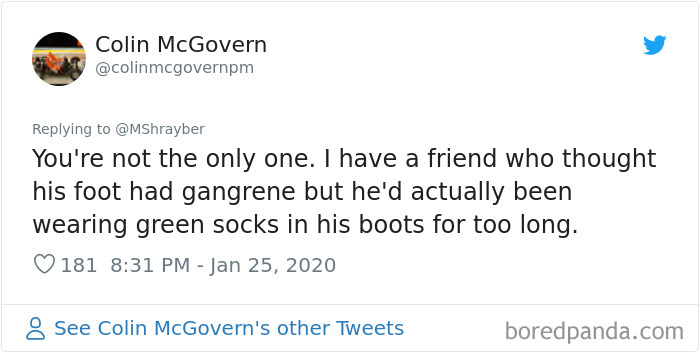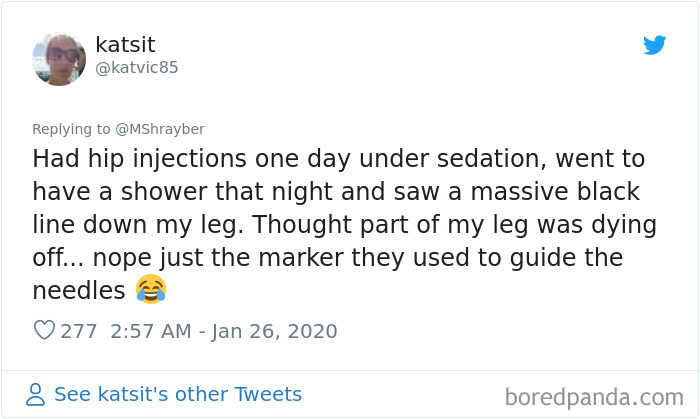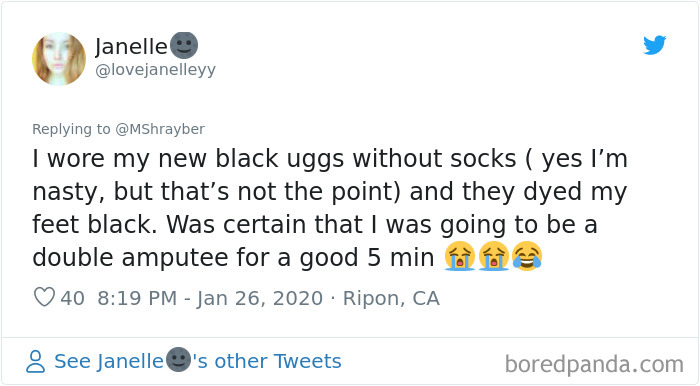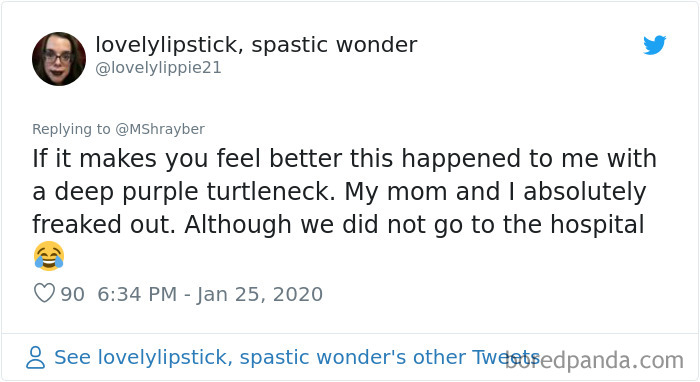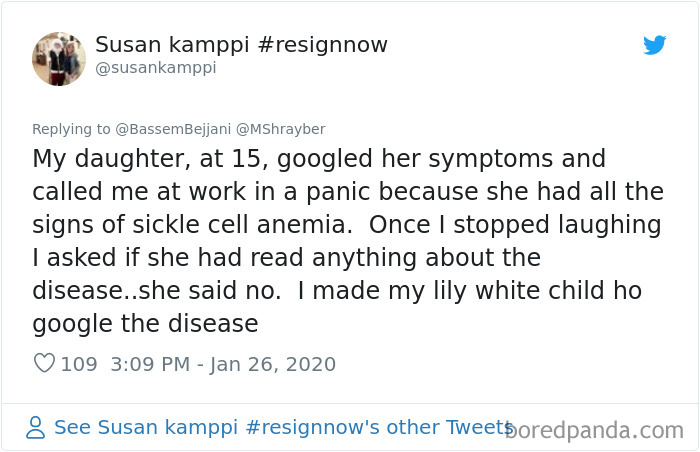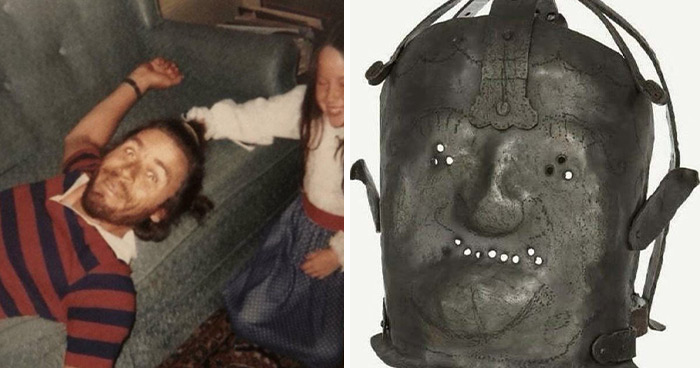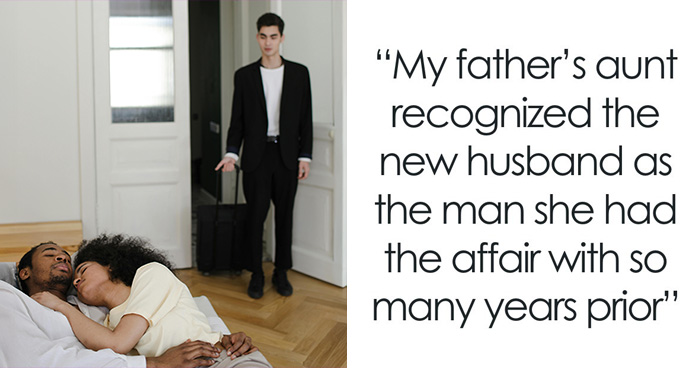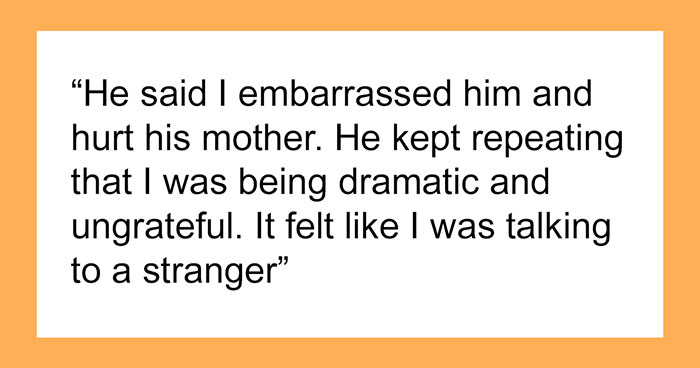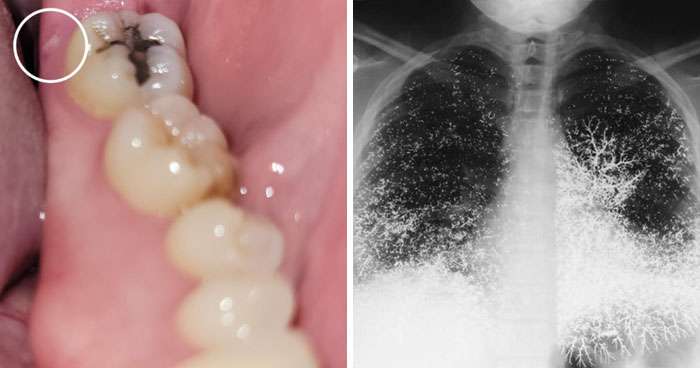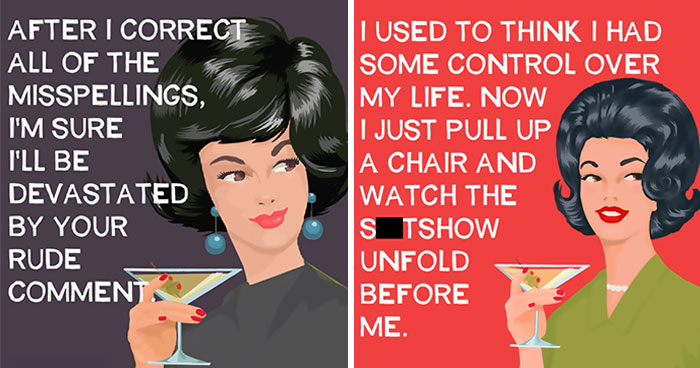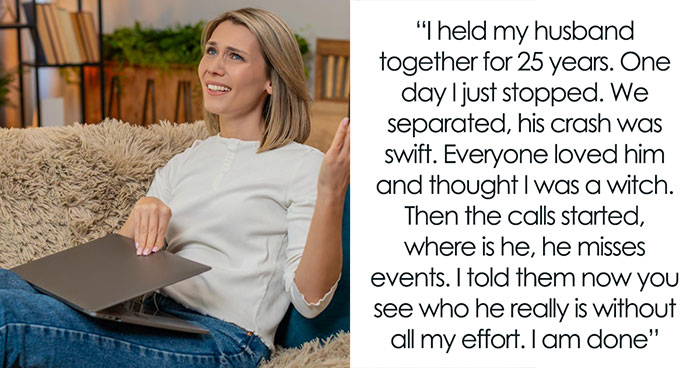It’s incredibly easy to freak out about your health. A slight cough. A tiny bump. A strange rash. Even feeling slightly off-key. All of these things can force even grownups (or was that especially grownups?) to panic. Even more so if they start googling their symptoms.
When Twitter user Mark shared his personal embarrassment after he went to the ER when his leg turned blue from his jeans, others joined in with their own medical freak-out stories. We’ve collected some of the best, so scroll down, upvote your faves, and read on for Bored Panda's in-depth interview with a psychologist. And be sure to share your own moments of panicking about your health in the comments.
After you’re done reading through this post (which, hopefully, helped you calm down), have a read through our article about one mom’s post going viral after she explained the importance of having your sick kids stay at home. Oh, and check out our post about the most absurd patient stories.
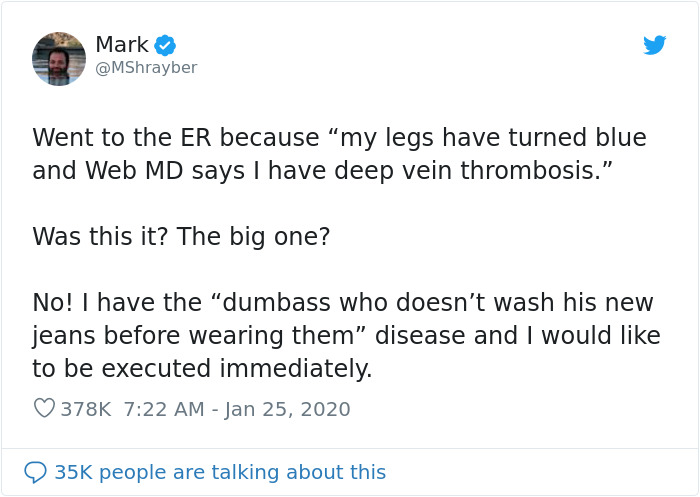
Image credits: MShrayber
This post may include affiliate links.
haha this reminds me of my first camping trip with my dad and brothers. We were eating banger sangas and I said that the bread tasted like citronella and that my tongue was a bit numb. They looked at me like I was an idiot and losing my mind. That was until my dad had his seconds and tasted it too. It turned out that the citronella had leaked all over our chopping board so when my dad was buttering the bread the citronella seeped in.
When I was a new baby my mom took me to the Dr because I wouldn't stop screaming. The doctor took my socks off and I was fine. There was a ring around my fat baby ankle where the sock was way too tight. She has told me she let me go sockless til I was getting ready to start walking and needed shoes because it scared her so bad.
While the internet is wonderful (it’s full of pictures of cats and dogs, after all), it’s not a very nice place for hypochondriacs—people who excessively worry about their health. It’s incredibly easy to read too much into your symptoms and make mountains out of molehills.
Most of us have fallen prey to this at least once or twice in our lives, even if we’re not hypochondriacs. Human beings tend to look at the worst in most situations, so when we see that our symptoms may be caused by cancer, we immediately fear the worst.
This leads to lots of stress, sleepless nights, promises to be better people and trying to make amends. Then we head on over to the doctor, they tell us that we’ve got a slight cold or something utterly benign. We finally relax and forget our promises to be better people. Until the next time that we open up Web MD that is.
Yep when I first discovered beetroot chips, loved them and ate a huge pack. Next day I thought I'd had some kind of haemorrhage!!!!! Literally thought I was dying
Bored Panda reached out to M.V., a psychologist working in the healthcare system in Lithuania, to hear her professional opinion about hypochondria and why some people tend to panic when checking what their symptoms might mean online.
"First of all, when people read about symptoms on the internet, they exhibit 2 fallacies: they personalize the information they get and they draw conclusions too quickly."
She continued and explained exactly what she meant about personalization. "Firstly, when a person feels pain and other unpleasant sensations and doesn't know what causes them, they feel anxious. That's why they try to find a logical explanation for what's happening and how they can feel better."
"That's why they become open to any and all information. When they read information online, their anxiety won't let them rationally evaluate the situation. They become suggestive. You can see that in how some of the symptoms manifest only after reading them."
LOL! I've been there with my cats. Turns out when a cat eats grass, the digestive system pulls out all the chlorophyll and they come out the other end looking like (to me at least) a whip worm.
The psychologist then told Bored Panda about the problem with making hurried conclusions. "When a person applies an illness' symptoms to themselves, they tend to make hurried conclusions and either accept or reject the fact that they have a particular illness. Often, after personalization comes confirmation when one's imagination creates a dreary scenario of how the supposed illness will progress. This further encourages people to read about that specific illness and its harm to the human body."
"When someone hoards information about an illness, they also imagine what it will be like living with the illness. Most often, the person imagines losing their health and starts feeling very strong negative emotions. That leads to a fear of death which even further reduces their ability to rationally evaluate their condition."
She added: "It's likely that destructive emotions only accelerate how quickly the person shows symptoms. The person feels bad and might even feel worse until their understanding of the illness is denied in an objective manner (i.e. consulting a doctor or having tests done)."
The psychologist told Bored Panda about the proper way to deal with panic upon reading too many terrifying descriptions of what your symptoms might mean. "First of all, you should evaluate the reasons for your symptoms and monitor how you feel until you meet with your doctor. You also ought to critically assess all of the health-related information you get from your surroundings (including your family members and friends) and the internet."
"You should also avoid coming to hurried conclusions on the basis of just your symptoms since similar symptoms could point to very different health problems. Also, remember that diagnoses should only be made based on test results conducted by doctors."
Ironically, Web MD agrees with the conclusion that the internet exacerbates hypochondria. Talk about being self-aware! “Hypochondriacs researching an illness used to have to scour books and ask doctors for information. Now a universe of information is available with a few mouse clicks.”
According to Dr. Brian Fallon, a professor of psychiatry at Columbia University, hypochondria costs billions of dollars each year in unnecessary medical tests and treatments.
Meanwhile, Dr. Arthur Barsky from Harvard Medical School states that hypochondriacs aren’t pretending to get attention. “They’re absolutely not fakers or malingerers. They really feel the distress they're talking about. It's just that their feelings don't have an obvious medical basis."
"What hypochondriacs have trouble accepting is that normal, healthy people have symptoms," Barsky explained. That means that hypochondriacs are super-aware of bodily sensations that most of us either live with or ignore. So what an upset stomach or a headache is to most of us, to a hypochondriac, they’re signs of cancer.
Not in hospital, just me as a kid in school. They send me to school psychiatrist with principal and my class teacher. Start telling me that injuring myself is bad and If I need some help with my mental health I should go and tell it they would help me.... Well they was just about to find out that I dont trim my cats claws and we played a lot, so that cuts on my hands are from her and not from some knife or something
Oddly, I've had the reverse of that. It hit in Russia - It was about -20C outside, and the place I was staying heated to a ridiculous 35C or so inside, so the temp difference was about 55C over a few seconds. My whole body came up in itchy, painful hives, and I felt awful until I got cold again.
Same thing happened to me with a birthmark on my face. Finally had it removed at 50. Done with people staring.
I was wearing boots with red fabric and they dyed my socks blood red after I had gotten them in the snow...
When I’m in the shower, there’s one mark on the wall that I always think is a spider. It always gets me multiple times per shower.
This is an incomprehensible tweet. Sickle cell means a specific gene is broken, which gives a partial malaria-immunity by chance if you have one faulty gene, so there's some populations where it is on average beneficial even though it has a high mortality (in those with two faulty copies). Meaning it's far MORE COMMON (not exclusive) in black populations... And then there's enough lily-white people that turn out to be 1/8 or 1/16th black.
Quite amused to see how quickly people run to hospitals. But still better than running too late
100% this. I'm twice lucky to be alive because I went to the hospital in time. Listen to your bodies, people. And it's better to be embarrassed than dead. (I know this is somewhat less useful advice for the unfortunate American pandas. You have to also weigh the risk vs crushing debt. Sorry.)
Load More Replies...I'm a pretty paranoid person to be honest but some of these baffle me. Why is that so many people wouldn't try WASHING their hand/foot/leg first just in case? My first response to purple on my foot would be "hmm my body part is not usually this color, lets see if something got on it...nope not washing off? Ok maybe now we need to contact the doctor."
Not to mention the questions of, does this oddly coloured body part hurt, tingle, is numb to touch, cold, hot... etc.?
Load More Replies...Quite amused to see how quickly people run to hospitals. But still better than running too late
100% this. I'm twice lucky to be alive because I went to the hospital in time. Listen to your bodies, people. And it's better to be embarrassed than dead. (I know this is somewhat less useful advice for the unfortunate American pandas. You have to also weigh the risk vs crushing debt. Sorry.)
Load More Replies...I'm a pretty paranoid person to be honest but some of these baffle me. Why is that so many people wouldn't try WASHING their hand/foot/leg first just in case? My first response to purple on my foot would be "hmm my body part is not usually this color, lets see if something got on it...nope not washing off? Ok maybe now we need to contact the doctor."
Not to mention the questions of, does this oddly coloured body part hurt, tingle, is numb to touch, cold, hot... etc.?
Load More Replies...
 Dark Mode
Dark Mode 

 No fees, cancel anytime
No fees, cancel anytime 






